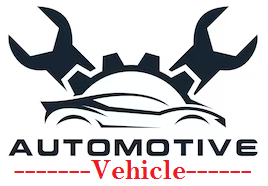In the fast-paced and ever-evolving automotive industry, dealership training plays a pivotal role in ensuring success and sustainability. As the first point of contact for customers, dealerships are the face of automotive brands, and the skills and knowledge of their staff significantly impact customer satisfaction, brand image, and overall business performance. This article explores the key aspects of dealership training, emphasizing its importance in cultivating a knowledgeable, skilled, and customer-centric workforce.
Product Knowledge
Dealership training begins with a comprehensive understanding of the products and services offered by the automotive brand. Sales professionals need to be well-versed in the features, specifications, and benefits of each vehicle in the lineup. This knowledge not only instills confidence in the sales team but also enables them to effectively communicate with customers, answer inquiries, and highlight the unique selling points of each vehicle.
Customer Service Skills
Exceptional customer service is a cornerstone of successful dealerships. Training programs should focus on developing strong interpersonal skills, effective communication, and the ability to build rapport with customers. A positive customer experience is not only instrumental in securing a sale but also in fostering customer loyalty and generating positive word-of-mouth referrals.
Technology Integration
Modern automotive dealerships are equipped with advanced technologies, from customer relationship management (CRM) systems to digital marketing tools. Training programs should ensure that dealership staff is proficient in using these technologies to streamline processes, track customer interactions, and leverage data for targeted marketing campaigns. Embracing technology enhances efficiency and keeps the dealership competitive in the digital age.
Compliance and Legal Knowledge
The automotive industry is subject to various regulations and legal requirements. Dealership staff must be well-informed about compliance standards, consumer protection laws, and ethical business practices. Training programs should cover these aspects to ensure that employees conduct business ethically, adhere to legal guidelines, and protect both the dealership and the customer.
Negotiation and Sales Techniques
Effective negotiation is a skill that can significantly impact a dealership’s bottom line. Training programs should provide sales professionals with strategies for successful negotiation, objection handling, and closing deals. Equipping staff with these skills not only improves sales performance but also fosters a sense of confidence and professionalism among team members.
Ongoing Professional Development
The automotive industry is dynamic, with new models, technologies, and market trends emerging regularly. Dealership training should not be a one-time event but an ongoing process that adapts to industry changes. Continuous professional development programs ensure that dealership staff stays updated on the latest developments, enabling them to provide accurate information and adapt to evolving customer preferences.
Conclusion
In the competitive landscape of the automotive industry, dealership training is not just a necessity; it is a strategic investment in the success and longevity of the business. A well-trained and knowledgeable staff enhances customer satisfaction, builds brand loyalty, and ultimately contributes to the overall success of the dealership. By prioritizing comprehensive training programs, automotive dealerships can position themselves as industry leaders, delivering exceptional value to both customers and stakeholders.





